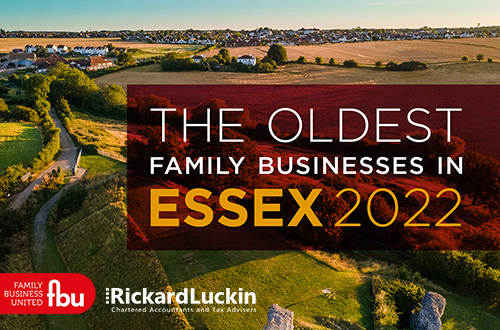We often get asked to assist family businesses who are keen to pass on the family trading company to the next generation by way of a gift of shares, which can be a tax-efficient option.
However, there are a number of tax considerations to be aware of including inheritance tax (IHT) and whether business property relief (BPR) would apply, and capital gains tax (CGT).
What is business property relief?
BPR is a relief that reduces the taxable value of property on which inheritance tax is charged. The reduction will generally be available where a transfer of business property is made, or where a deceased estate contains business property.
An asset qualifies as business property if it meets two conditions:
- The transferor must have owned the asset for at least two years continuously before they transfer it or before they die; and
- The asset must fall into one of the qualifying classes.
Included within the qualifying classes which can qualify for 100% BPR are shares in an unquoted trading company (or group).
For this purpose a ‘trading company’ (or trading group) is effectively defined as one whose activities consist “wholly or mainly” of trading activities. This is accepted to constitute a greater than 50% test, however it can be considered by reference to assets, income, profits and management time, with all of these factors being looked at ‘in the round’ to determine if the company (or group) is wholly or mainly undertaking trading activities.
Assuming that a company (or group) has had its activities reviewed and is considered to satisfy this requirement then BPR should apply. However, there are a number of other pitfalls to watch out.
Potential pitfalls with business property relief
- Where assets related to the company’s trade such as land or building are held outside of the company then 100% BPR will not apply. BPR at the reduced rate of 50% can apply but this requires, immediately before the transfer or the transferor’s death, that it was used for business purposes by a company controlled by the transferor.
-
Passively held investments owned in the company (or group) are ‘excepted assets’ such that their value is not covered by BPR, even where 100% BPR is otherwise available. Passive investments typically include assets such as:
- investment property which is not let out (e.g. lived in by a relative);
- excessive cash reserves held for investment purposes (e.g. in a fixed rate bond); and
- loans made on non-commercial terms to a connected party outside of the corporate group.
- Subsidiaries within the corporate group whose activities do not, when considered in isolation, meet the ‘wholly or mainly’ trading requirement, are also considered excepted assets and excluded from a BPR claim.
- Whether the trading activities undertaken are within any of the excluded trade headings which are specific to BPR. This list includes trading in land or buildings which for CGT purposes is considered to be a trade but is excluded from qualifying for BPR.
- Whether binding contracts for sale are in existence which can prevent BPR from applying. For example, if there is a shareholder’s agreement which obligates the buying back of a deceased’s shareholding on death then the asset in the death estate is considered to constitute cash for IHT purposes (i.e. taxable), rather than shares in the company which would potentially qualify for 100% BPR.
- Where lifetime transfers are subject to the IHT on death (where the donor dies within 7 years of making the gift), BPR may be withdrawn (or no longer be available) on lifetime transfers that originally qualified for the relief. In broad terms this will be the case where the donee no longer owns the business property that was given to them, or the property owned by the donee no longer qualifies for the relief.
Will I have to pay capital gains tax?
A gift of an asset to a relative is deemed to be a disposal at market value for CGT purposes. However, where the asset in question consists of shares in an unquoted trading company then business asset gift relief can be claimed by an election between the transferor and transferee. The effect of that election is that the transferee then inherits the transferor’s base cost for tax purposes, and the deemed gain that would have arisen for the transferor is instead deferred until the transferee sells the shares.
To meet the definition of a trading company (or trading group), it must undertake activities which overall do not to a ‘substantial’ extent consist of non-trading activities. HMRC interpret the meaning of substantial in this context to mean 20% and activities of a company (or group) should be judged ‘in the round’, taking account of factors including assets, income, profits and allocation of management time.
Assuming that a company (or group) has had its activities reviewed and is considered to satisfy this requirement then business asset gift relief should apply.
However, the legislation contains a restriction to the relief that can be claimed where companies (or groups) have chargeable assets which are ‘non-business’ assets. Non-business in this context is taken to mean ‘non-trading’ and, therefore, investment properties would be a common example of a non-business asset.
Business asset gift relief restrictions
The restriction only applies where:
- During the one year prior to the gift the transferor has held at least 25% of the voting rights in the company; or
- The transferor is an individual and, at any time during the one year prior to the gift, they were a director or employee of the company and held at least 5% of the ordinary share capital and voting rights.
Here the restriction applies the gain which cannot be deferred (and is, therefore, taxable) is equivalent to the gain (as originally calculated) multiplied by the proportion of the chargeable assets of the company (or group) that are chargeable business assets.
For example, Company A is owned 100% by Mr. X who originally founded the company and started trading in 2005. Mr A wants to gift his daughter, Miss X, a 10% holding in the company. The company owns its trading premises (valued at £2m) but also owns an investment property worth £400,000. The company has no other chargeable assets. In this case around 17% (£400,000/£2.4m) of the gain arising on the gift would be subject to capital gains tax.
If you have any queries in relation to the above please let us know.
This is intended as a summary and overview of the tax situation and does not constitute financial advice and no action should be taken without first seeking professional advice specific to your circumstances.
If you have any questions about the above, or would like more information specific to your circumstances, please enter your email address below and we will get in touch:
















